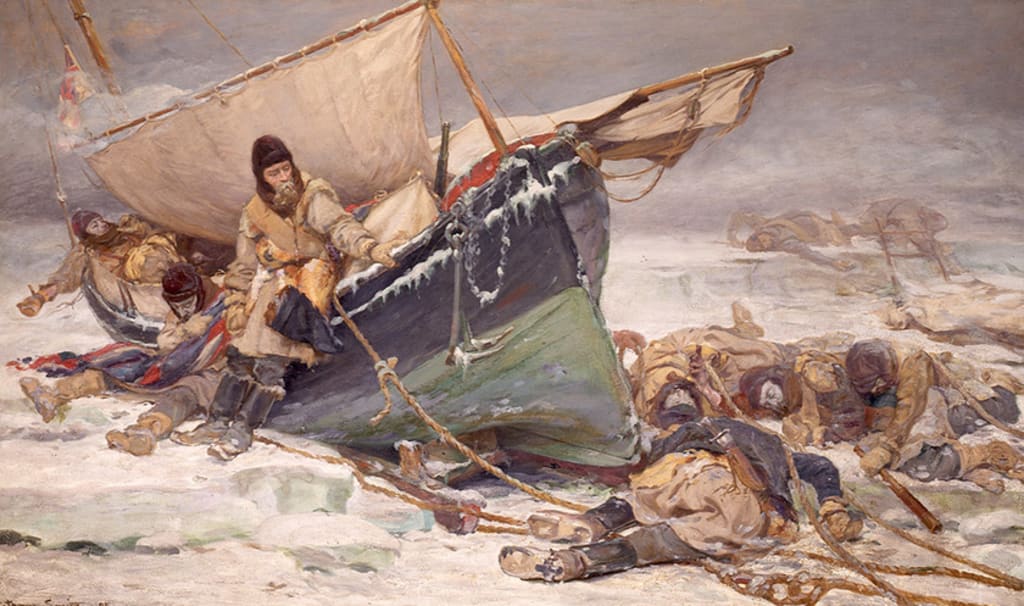Canned Stew and Empires
The ignominy of ignored invention

Laying out a sequence of cause and effect in history is sometimes a dangerous pastime. But let’s give it a try.
Napoleon Bonaparte was arguably the most capable commander and emperor in modern times. There were other powerful emperors, even if they did not take on that title, but they generally failed as commanders. As a part of his role as commander of the French army around 1800, Napoleon sought a solution to the problem of inadequate food for his troops. It seemed, oddly enough, that the people who he was invading took to destroying their crops and stored food as they retreated from his advancing forces. This meant that the only way to feed his legions was to cart in food from behind the lines using wagons and horses. It was not efficient and as those supply lines became longer and longer with the successes he had in battle, the lines themselves became an exposed liability.
How could he carry enough food along with his army to feed them for weeks or months, all without the food spoiling? I suppose he thought about it long and hard and came up with nothing. So, he announced a competition! He offered 12,000 francs, the equivalent of 30 or 40 years wages for an ordinary worker, to the person who could demonstrate preserving food in volume.
Even though he’d been experimenting for years already, it was not until 1810 that Nicolas François Appert was recognized by Napoleon for the process of canning. Appert was awarded the 12,000 francs, but he never managed to become commercially successful.
Odd it was that such a fundamental advantage in the making of fast-moving war would have been ignored by the French army. Perhaps the timing was just not right. In 1815, Napoleon was defeated (for the second time) and sent to a remote island in the South Atlantic. The French army and navy were drastically reduced. What might have happened if preserving food in bottles had been adopted? Would Napoleon’s army and navy have been able to outrun, outgun and outmaneuver their opponents? Would there have been a long-lasting French Empire, extending far beyond Europe?
One can perhaps point to two ironic developments at this time. First, the British saw the usefulness of preserving food and began using the process – without compensating the patent-holder in France – although the British used cans made of tin. They could do this reliably because British manufacturing was itself more reliable than that in France at the time. Cans were far cheaper to make, and more resilient in the field. The irony was that the tin cans were sealed using lead solder. Unbeknownst to the British commanders, the lead leached into the canned food. It did so gradually, and so did not affect the short-term users of canned food: namely, the army and navy. But for longer term storage it proved fatal. Many British expeditions to the Arctic failed because the explorers fell prey to lead poisoning from their own ‘perfected’ foods. As a result, Arctic exploration was much delayed.
The second irony involves Napoleon himself and North America. After suffering a defeat due to diseases in Saint Domingue in the Caribbean in 1803, Napoleon was forced to withdraw his armies back to Europe. There, he was still under threat from the British and their allies. War was and is an expensive proposition, and Napoleon needed funds. Having pulled back from his ambitious plans to create a large empire in North America, he offered to sell a large tract of land to the fledgling republic recently recognized by the French royalty which preceded the Revolution. Thomas Jefferson famously leapt at the offer, and purchased the Louisiana Purchase for a song – or perhaps for a sou. If Napoleon had fortified his army with canned foods, perhaps they’d have survived on Saint Domingue, or at least been strong enough to move to the mainland. Napoleon would have pursued his ambition to build an empire beginning with Canada and central North America, and the whole of the map would be different today.
The United States might have been fenced in at the Mississippi. Russia might have conquered the Northwest, as they had already begin to do. A strong France might have kept its hold over Canada. Spain might have maintained their hold on Alta California and Mexico, what with no threat from U.S. citizens coming westward. Gold might have been discovered when Sutter’s land was still part of a stable and controlling Spanish Empire. San Francisco might have Spanish as its primary language, and English far down the list.
So, for lack of a can of peas, the set of world powers in the last 150 years might have been quite different!
Copyright 2021 by William Altmann, all rights reserved.
About the Creator
William Altmann
I've been an engineer. It's provided me with travel to many places and stories of people. That, with my passion for history, have given me many stories to write. And I do love to tell stories! I have written 17 books since early 2020.






Comments
There are no comments for this story
Be the first to respond and start the conversation.